- Learning time
- 20 minutes
- First play time
- 60 minutes
The Quacks of Quedlinburg
Designed by: Wolfgang Warsch
The Quacks of Quedlingburg (or in German, Die Quacksalber von Quedlinburg) is a game of potion brewing. Brew the best potions to score the most points – but beware, as some ingredients are volatile! Add too many, and your potion explodes.
Each player has a cauldron board in front of them with a drop at it’s centre – around the centre a path spirals outwards, upon which you’ll add ingredients. Everyone starts with the same ingredient chips – one spider, one pumpkin, and several volatile. Over the course of nine rounds everyone takes turns drawing these chips from a bag, unaware what will come out. A chip numbered ‘1’ moves a single space along the path, whereas a ‘2’ moves two spaces, and so on. Moving along the path is good, because the further you are the more points you score and the more money you make – at the end of each round you add on points and spend money on new, potentially more exciting, ingredients to add to your bag.
But! If the total value of volatile ingredients in your cauldron exceeds seven, your potion explodes, and now you have to choose come the end of the turn whether to score points or spend money – you can no longer do both.
How the chips function also comes into play – the pumpkins are mere flavour in your brew, but the other ingredients can function in a variety of ways from game to game – triggering more rewards, or preventing explosions. Players also begin with a bottle of potion that you can flip to chuck an unwelcome chip back in the bag, and earn gems to either ‘refill’ this potion (ie flip back to its full side) or push their starting drop along the path.
Finally fortune cards pop up at the start of each round that provide either incentives, or a boost to a player who might be falling behind. After the ninth and final round, the most points wins.
Joe says
I liked my couple of plays of Quacks, sort of like playing your own personal Bingo - that said I agree with Sam's reservations above.
The guru's verdict
-
Take That!
Take That!
So little as to be absent. There's almost no direct interaction.
-
Fidget Factor!
Fidget Factor!
It's a fast-moving game - your main decision of note is whether to pull another chip from the bag.
-
Brain Burn!
Brain Burn!
To pull a chip, or not? Outside of that luck-pushing element, there is the pondering of what ingredients to purchase.
-
Again Again!
Again Again!
The ingredients can be played in lots of different ways, so there's variety in that. But the main sense of the game is in the brewing, and hoping to avoid the volatile chips.




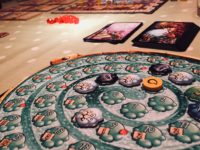
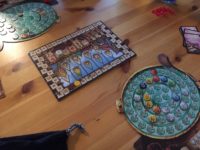
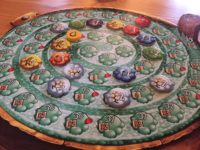


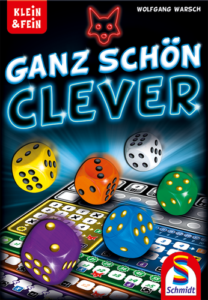
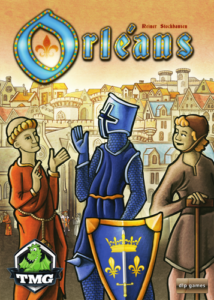
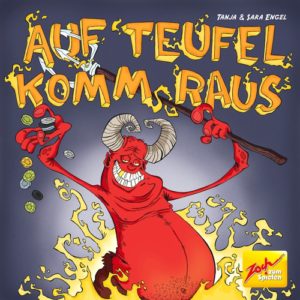
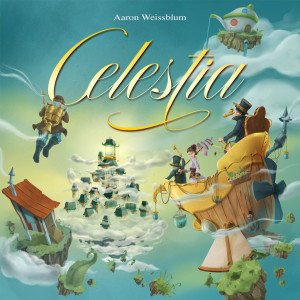
Sam says
The fun in pushing your luck with the brewing is evident in every game I've played, and that thrill when you get the chip you needed (or at least avoided a volatile ingredient) is lovely, just as your brew exploding is exasperating. But outside of that, it does feel very luck-dependent with little capacity to manage a bad draw - we've had games where a winner was fairly clear before the last round began, and for a short(ish) luck-pushing game it's on the long(ish) side, and a bit fiddly to set up, play, and pack away! So at the risk of being po-faced, whilst I see the appeal of Quacksalber, it's not a game I yearn to play again and again. Unlike the same designer's other games, which I've found rather addictive.